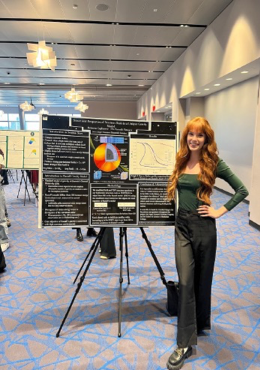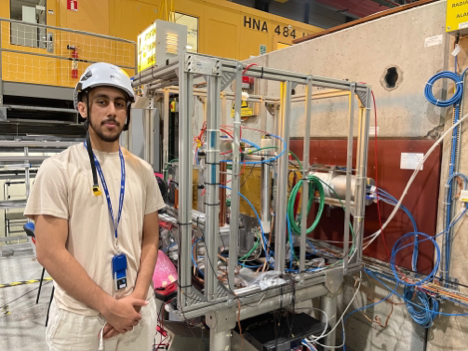Why Choose Physics and Astronomy?
Physics is fundamental to science and engineering, and addresses deep questions about our place in the Universe. Majoring in physics and astronomy allows you to develop strong technical and analytical skills, which are applicable to nearly any profession.
What Will You Learn?
You will learn how to define and solve complex problems using mathematical, computational and experimental techniques, and how to communicate your findings effectively to others. You will never again view the world in the same way.
The curriculum is designed to help you master a range of theoretical and experimental topics, including:
- Mechanics
- Electricity and magnetism
- Waves and optics
- Thermal and statistical physics
- Computational physics
- Relativity, astrophysics and cosmology
- Quantum physics and computation
Course descriptions and degree requirements can be found here.
We offer a Bachelor of Arts and a Bachelor of Science degree. You may choose to combine your interests by taking an additional major, minor or concentration in another field of study such as computer science, education or economics. Physics is also offered as a minor, and we also offer a minor in Astronomy. We also offer a concentration in theoretical physics. Physics can also be used to satisfy the concentration requirements for majors in adolescent education.
See degree requirements
Research Opportunities

Research is both required and supported, and students participate in cutting-edge research both on campus and at laboratories around the world.
Recent projects have taken students to Argonne National Laboratory in Illinois, Brookhaven National Laboratory in Long Island, and the European Center for Nuclear Research (CERN) in Switzerland.

Manhattan University students and faculty participated in research with the ATLAS collaboration at the Large Hadron Collider at CERN, which co-discovered the Higgs boson in 2012.
Recent student and faculty research topics include:
- semiconductors and nanomaterials
- early universe cosmology
- laser interferometry
- neutron star astrophysics
- high energy physics
- multi-messenger astronomy
Visit Campus
Request Information


